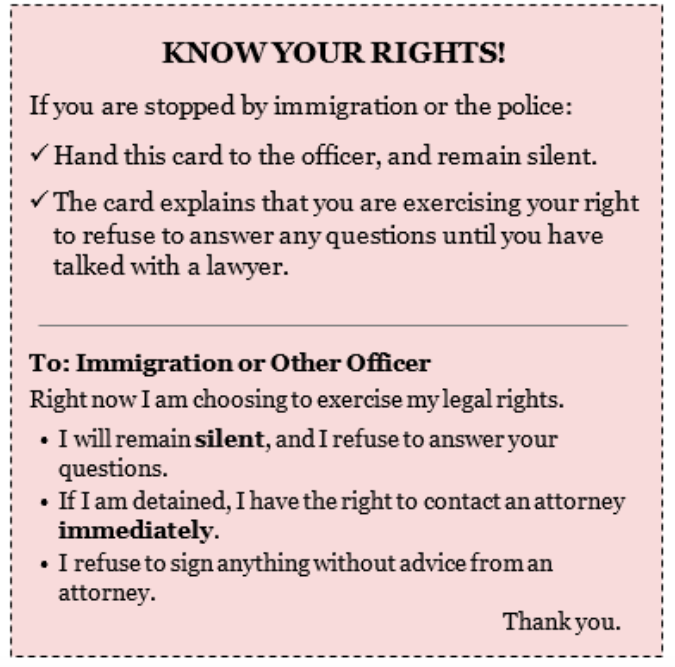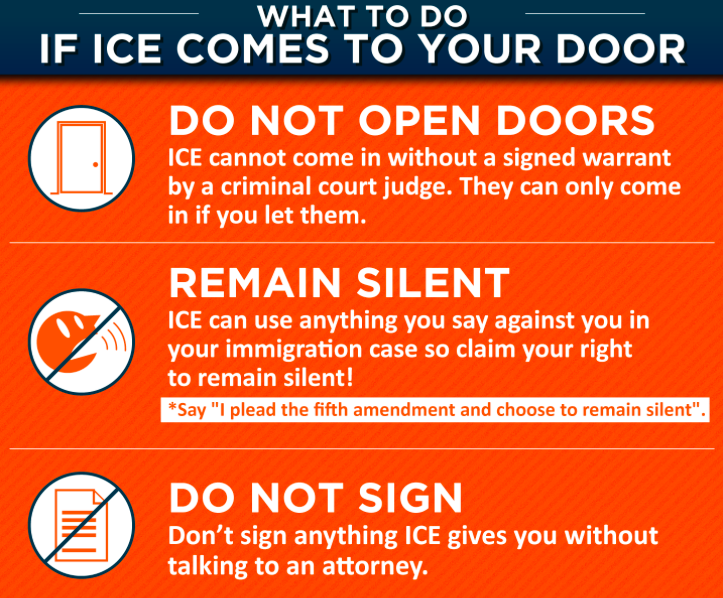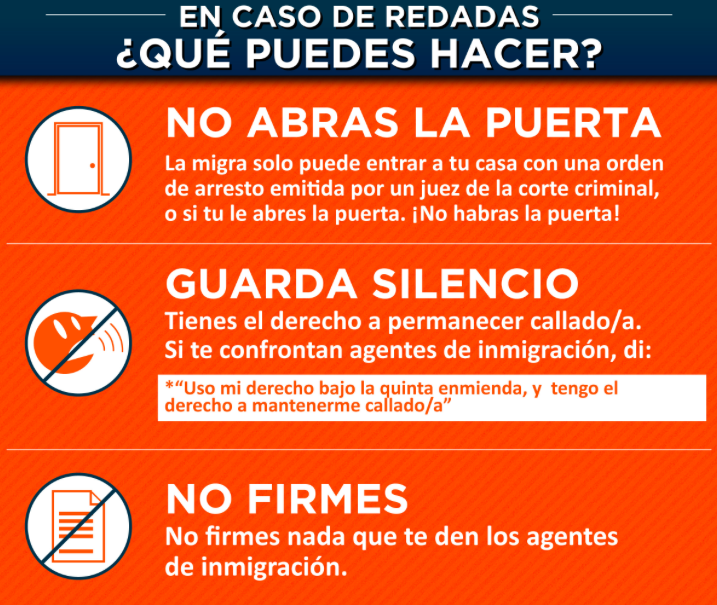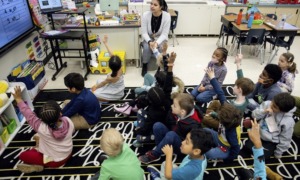As the U.S. Department of Homeland Security steps up deportations under new policies announced Tuesday, some organizations are working to inform young immigrants of their rights.
The youth-led organization United We Dream, an advocacy network for young immigrants, provides a wallet-size card in Spanish, Arabic, Chinese, Korean and English.
“We think it’s critically important that all people are familiar with their rights and what they’re entitled to,” said Adam Luna, senior advisor at United We Dream.
It’s important not only when youth encounter law enforcement officials, but also because some young people have been stopped by random strangers, he said.
The “know your rights” card has five points designed to help individuals know how to respond to U.S. Immigration and Customs Enforcement (ICE) and seek legal support if needed.

The National Immigration Law Center also produces cards that have been widely disseminated, said Jess Hanson, a Skadden Fellow at the center.
Many of the cards are printed with English on one side to show to a police officer, and in the immigrant’s language on the other side, she said.
“Several nonprofit legal centers across California (and the nation) have been providing know-your-rights programs, and many can be tailored to specific audiences if requested. Thus, youth groups [that] would like to set up youth-oriented educational programs can do so,” she wrote in an email to Youth Today.
The center points out that everyone has certain basic rights under the Constitution, “no matter who is president.” It also provides a fact sheet of basic rights.
Responding to new rules
New rules issued Feb. 21 by Secretary of Homeland Security John Kelly mean that millions of undocumented people could be prioritized for deportation.
[Related: ‘Dear Mr. President:’ What Muslim Youth Want President Trump to Know]
The department proposes to hire thousands of additional agents, speed up deportation hearings and work with local law enforcement agencies to make arrests. Instead of the previous policy of focusing on individuals with criminal convictions, the new policy targets undocumented people who may have committed a crime but not been charged or those deemed by an immigration officer to be a risk to public safety.

Greisa Martinez, advocacy director of United We Dream, said in a statement, “Under Trump’s executive orders — everyone is a target for deportation.”
Martinez came to the United States from Mexico with her family when she was a child. As an undocumented student, she co-founded the Council for Minority Student Affairs at Texas A&M University. She also founded the Texas Dream Alliance.
Approximately 750,000 undocumented young people brought here as children have gained the right to live and work in the United States under President Obama’s executive order Deferred Action for Childhood Arrivals (DACA).
Kelly, of Homeland Security, said DACA recipients would be protected, but Martinez was not so certain, based on the detainment of DACA recipient Daniel Ramirez Medina, who was picked up and held in a deportation raid earlier in February.
Medina signed a statement without the presence of an attorney; ICE officials say the statement shows he was a member of a gang, according to the Seattle Times.
His lawyer, Mark Rosenbaum, told the Seattle Times that ICE altered the statement and that Ramirez is not a member of a gang.
Direct service organizations have another matter to respond to as well: the young people who have to translate and take very adult roles as bicultural youth.
“Amid the current widespread fear and dismay in immigrant communities, these youth carry a heavy burden, since they often serve as connectors between the news they absorb and their family members who speak other languages,” wrote the National Immigration Law Center’s Hanson. “In light of this burden, it is exceedingly important for schools, health centers and community organizations to provide psychological support and safe spaces wherever possible to this group of young people. It is also important for organizations that provide community education to translate their outreach materials into other languages and to provide in-language workshops.”
More related articles:
Young People Protest Trump’s Immigration Order
No Job, No Home, No Green Card: Crashing Into 21
Meeting the Needs of Kids in the U.S. Who Fled Violence in Central America































